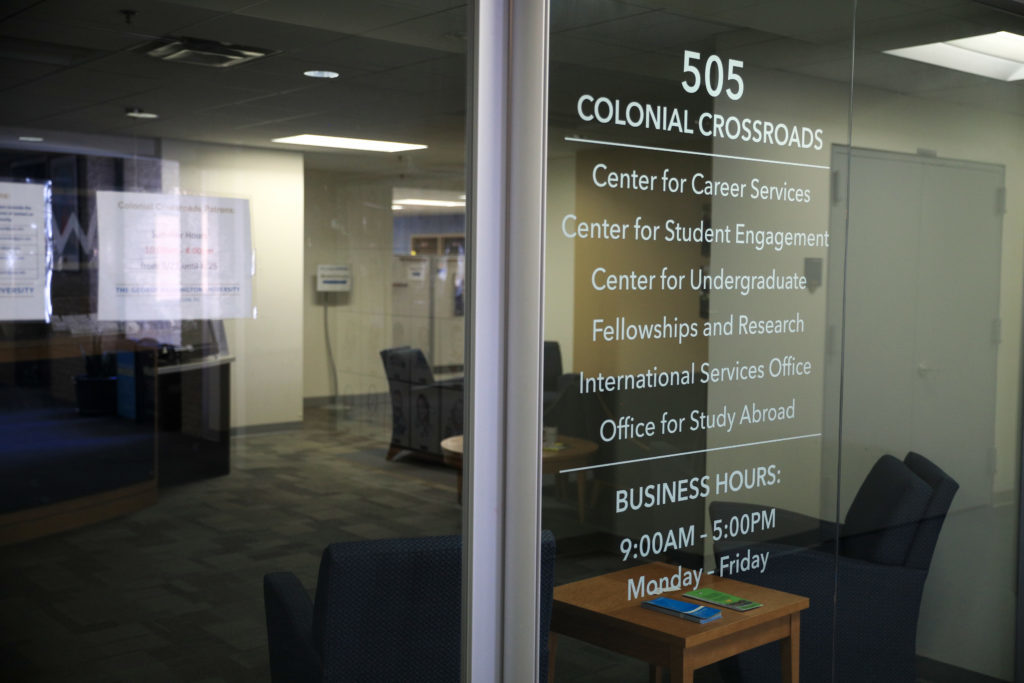More than half of the University’s scheduled study abroad programs this summer were canceled because of low enrollment, prompting officials to examine why interest is waning.
Eight out of the 14 planned programs were scrapped last month, at least double the number of cancellations than an average summer, the University’s top study abroad official said. Most were canceled because of pricey tuition, which deterred students from signing up, faculty leading the programs said.
Donna Scarboro, the associate provost for international programs, said this was an “unusual” summer for cancellations because only about two to four are typically canceled each summer. She said the office would examine why more programs were cut this year.
“We will consult with faculty and academic advisers to see if we can identify any patterns or reasons why these programs did not generate student interest this summer,” she said in an email.
The eight canceled courses ranged in topic from a Spanish language class on Cuban history to a journalism course on multimedia reporting in Belize and a public health course on the challenges in Israel.
The number of short-term study programs has been rising in the last few years as officials have encouraged students who don’t have the opportunity to go abroad for a full semester to travel with a professor for a week or two during the summer. Study abroad opportunities are an important recruiting tool for prospective students and officials have made it part of the strategic plan.
“If there is a substantial gap between deposits made and the number required, a program will be removed from the summer study-abroad option list.”
Scarboro said each course is individually assigned a target enrollment number that it must reach to be “cost-effective for all participants.” Faculty said the enrollment number threshold is usually about 10 students.
“If there is a substantial gap between deposits made and the number required, a program will be removed from the summer study-abroad option list,” she said.
She added that students who enrolled in a cancelled program can participate in a different GW or University-sponsored summer abroad program.
Mark Langevin, a research professor and the director of the Brazil Initiative in the Elliott School of International Affairs, was set to host an economic, energy and environmental policy program in Brazil for the second time when it was canceled for lack of enrollment. He said that it’s not unusual for small study abroad programs to be canceled because of financial issues or prior student commitments.
“It’s not uncommon to have 30, 40, 50 percent fall off when it really comes down to the decision of putting money down,” he said. “A lot of times students get an internship that they are getting excited about and can’t go. Things happen.”
Maida Withers, a professor of dance, created a two-week-long cultural program in Moscow, Russia entitled “Russia: Arts, Architecture and Culture Wars” for the first time this summer, but only five students signed up out of the 10 needed to make the trip happen.
Withers said several students told her that it was the nearly $6,900 estimated cost of the program that dissuaded them from enrolling. Although tuition, housing, transport and some cultural events added up to $5,400, outside expenses like airfare, meals and gifts would add about another $1,500 to the trip, she said.
Withers said the study abroad office told her that her program was one of the “lower-cost” courses.
“I felt like the tuition seemed not to be reasonable, in my opinion, for 10 students,” Withers said. “That’s a lot of money.”
She said that it took two to three months to organize the program and that she was “disappointed” to have all of her hard work fall short, even though that is a risk many professors take when creating short-term study abroad programs.
“I know GW students. They want to study abroad. They want international experience. They deserve to be able to do it.”
“You create a syllabus, you create all the contacts abroad, you put together where people are going to stay and how they are going to get visas,” Withers said. “You just take your chance on it happening.”
Withers said she was concerned that many abroad programs are inaccessible financially to students and that all students should get a chance to study outside the U.S.
“I know GW students. They want to study abroad. They want international experience. They deserve to be able to do it,” she said.
Julia Scolapio, a rising junior majoring in international affairs and dance, said she was initially going to put a deposit down for Withers’ class but was ultimately turned off by its cost. Instead of spending nearly $7,000 for the two-week program, Scolapio said she will soon depart for a six-week study abroad program in Ecuador through Florida Atlantic University, which will cost about $4,000.
Aside from high tuition, Scolapio said the narrow topics of this years’ summer study abroad classes may not have appealed to enough students.
“I think when you get these programs like the one that Maida was planning to do in Russia for performance, it is way too specific to target a larger market,” she said. “If you’re doing it in such a specific niche, it’s really hard to get that many students interested.”





